One of my all-time favourite fantasy cycles is the Chronicles of Thomas Covenant the Unbeliever by Stephen Donaldson. They were the first fantasy books I ever read other than the classics such as Tolkien, Lewis and Carroll. My grandfather sent me a copy of the first book in paperback when I was living in France, “You’ll like this. The cover says it all…”
Well, if it did, I didn’t fancy it. Bear in mind the fantasy genre hadn’t come my way much back then and flicking through the first chapters the style didn’t appeal, the hero was an anti-hero and commits unspeakable acts. I didn’t care for the way the opening chapters were written and honestly, the only reason I persevered was because I had already read my way through all the English language books in the library in Vichy, including the ones in the storeroom. Reading in French wasn’t quite as relaxing, though it could be amusing to see how classics of English literature had been translated. I read many a work in desperation that I would not otherwise have considered and engaged areas of the brain other than pure imagination.
Had the internet existed back then in its current form, I would doubtless have found those all-important reviews that almost predetermine our opinion of a book. I may have read the ones that hail Donaldson’s creation as brilliant, moving and much-loved…or those who say they are not his best work, use stale tropes and draw too much upon old tales and legends. They might have swayed my decision to read the books… even though such criticism could equally have been levelled at Tolkien. As it as, I took the old-fashioned stance of making up my own mind.
The simple fact that the book compared itself to Tolkien on the cover… and ‘at his best’ too…was enough to leave me sceptical even before I read the first page. Then, within those pages, I met the central character of the story… and it wasn’t hero or heroine, it was the Land. A place where beauty is alive, responsive, communicative… real.
I was hooked. The plot deepened and it became more than the tale of a living landscape that sang to me of my own roots and the moors of home. It became a story of the awakening of beauty in a soul to whom it had been lost, it was the opening to love and trust in a place of darkness.
“Something there is in beauty
which grows in the soul of the beholder
like a flower:
fragile –
for many are the blights which may waste
the beauty
for the beholder –
and imperishable –
for the beauty may die,
or the world may die,
but the soul in which the flower grows
survives.”
Stephen R. Donaldson
There have been many books that have made me laugh and cry… but I think few have touched such a deep place with such intimacy. Had I allowed the dark places within my own heart and memory to outcast me as a leper, unclean? The story pulled me up short and became a journey lived, not just a story read. Yet it is just a story… something unreal, made-up… and still, somehow the leper’s journey into his own inner darkness leads beyond mere survival to light.
I couldn’t wait for the second series…and my horror when I found the Land razed and wasted was real. Again I had to force myself to persevere. No longer because there were things I did not like, but, as Covenant says, “This you have to understand. There’s only one way to hurt a man who’s lost everything. Give him back something broken.” You felt that with him, the reader’s soul keened for its loss and hurt.
In the second series, Covenant was not alone… there was a woman with him, Linden Avery… a doctor. And she too was broken, feeling the hurt of the Land through her physician’s senses in every pore. Here too, echoes made me examine my own mind and heart.
I suppose you could read the books as just stories. Like most people I suspect, I don’t read that way. Imagination paints pictures into which I step and live the story with the characters, seeing the parallels between their stories and challenges and my own played out in full view or hidden in symbolism within the tale. Fantasy became a firm favourite because of this depth and as a gateway to understanding myself.
“Fantasy is hardly an escape from reality. It’s a way of understanding it.”
Lloyd Alexander
As a reader, Linden Avery was a challenge. You couldn’t like her. She was uncomfortable, damaged, withdrawn from her own reality by hiding within the utter professionalism of the hyper-reality of medicine. There is a moment when the story breaks through her barriers and a litany commences in her mind, “You never loved me anyway.” It arose from the deep past, a child’s cry in a woman’s mind that defined the reality she believed in for herself. It built a barrier she dare not cross for fear of what the truth might really be… and for fear of finding that pain once again, fresh in memory and anew in her life.
This phrase that played through my mind as I pondered the way in which we perceive and construct our own reality; how we unconsciously… often helplessly… allow the past to layer veil after veil upon the truth of who we are and the lives we allow ourselves to live. We construct barriers of logic and reason and walls equally secure, if not thicker, of fantasy and emotion behind which we can hide. The rose-coloured veils are perhaps the hardest to rend because they destroy our illusions of self and make us question who we are, who we think we are and why we prefer to live in the illusion rather than face the reality in the mirror. I think it is a question we must all face at some point in our lives when we begin to seek to understand rather than simply move through life, surviving day by day.
“The heart cherishes secrets not worth the telling”
Stephen R. Donaldson
Near the end of the second trilogy of the Chronicles, there is a moment of utter transcendence, which left me gasping at its beauty the first time I read it. It illustrated the power hidden, latent, within each of us to shape our lives and futures. It showed what can be achieved by the human heart that is truly open to love and that learns the meaning of that much-overused word ‘unconditional’.
“Despair and bitterness are not the only songs in the world”
Stephen R. Donaldson
In letting go of past belief and allowing the veils of self-imposed illusion to be rent we can find a freedom to act, to live and to be in truth, accepting the sometimes inevitable hurts of life as part of the process, but knowing, quite simply, that beyond them lies a path to freedom and joy.




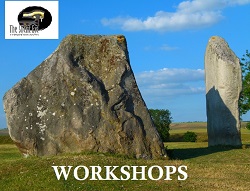

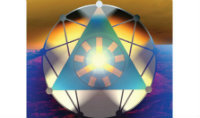

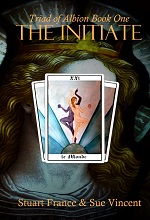


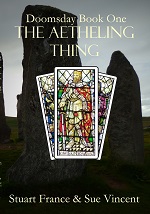
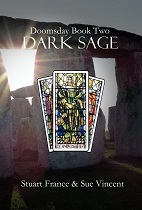
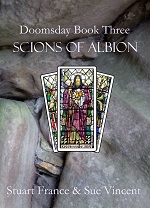
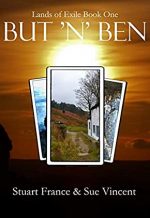






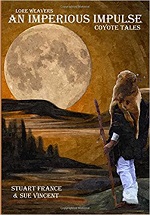


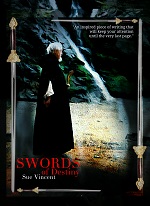

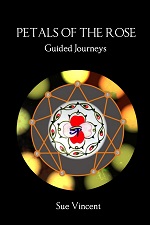

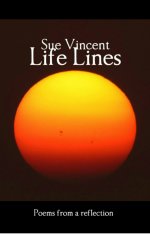
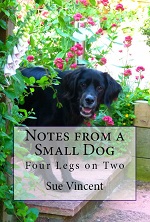



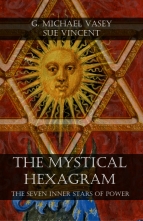

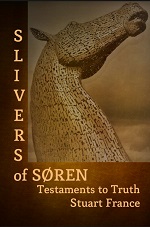


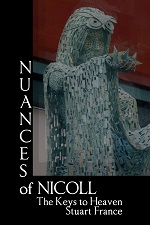


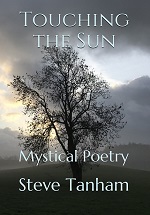

Pingback: More than survival – The Militant Negro™
Thank you 🙂
LikeLike
Reblogged this on Sun in Gemini.
LikeLiked by 1 person
Thanks, Steve x
LikeLike
Ah yes, Thomas Halfhand, the white gold wielder.One of the few series where you couldn’t really identify with the hero but you had little choice but to follow him on his quest,
xxx Huge Hugs xxx
LikeLiked by 1 person
I found it very hard to get to grips with the early chapters. After that, I was hooked. Hugs, David xxx
LikeLiked by 1 person
My Mum loved these books, she would read them over and over again. xxx
LikeLiked by 1 person
I’ve read them a time or two too 😉 xx
LikeLiked by 1 person
Reblogged this on Viv Drewa – The Owl Lady.
LikeLiked by 2 people
Reblogged this on Die Erste Eslarner Zeitung – Aus und über Eslarn, sowie die bayerisch-tschechische Region!.
LikeLiked by 2 people
My favourite books of all time. Though the last series was a bit of a let down, the first two are unparalleled – the only thing that compares for me are the Dune books and Donaldson’s own Sci-fi series – The Gap books.
LikeLiked by 1 person
I never did get round to the last series…after Linden, I wasn’t sre I could face any more damage to the Land.
LikeLike
Pingback: More than survival - Scott Andrew Bailey
Thanks for sharing 🙂
LikeLike
The first book of the first series was the first fantasy book I ever read. I inhaled it! … and the next five. I haven’t got into the third trilogy as yet. I’d have to re-read the previous books to refresh my memory. 🙂
Donaldson created such richness. I’d call him the kind of writer talked about in your post on ‘the right way to write’, one you’re not aware of. 🙂
LikeLiked by 1 person
I loved the first six… the last series is still on my shelves, waiting for the right moment… and I’ve been waiting a good while 😉
LikeLiked by 1 person
I understand. Those moments just, just, turn up when they feel like it don’t they? 😀
LikeLike
It has to be right 😉
LikeLiked by 1 person
Pingback: Writing Links…5/7/18 – Where Genres Collide
🙂
LikeLike
Reblogged this on Stuart France.
LikeLiked by 1 person
You know, this is uncanny! You must have read my journal for this week before I even finished it!!! So much of what I was thinking about and telling someone else about related to history, the nature of life itself, and our thinking about it. I was trying to explain to my friend, a paraplegic who often believes that everything is wrong with her life, that our lives are what we make of them. We can feel that we are wealthy beyond measure when we are able to look beyond what we see and hear in the world, but it doesn’t happen automatically. We have to discipline and train ourselves in thinking and also learning to be grateful for what we have just where we are. I am happy with what I have and where I am because I am where I am meant to be. I don’t know my whole purpose, but I know that if I were supposed to be different, I would be. I am not going to live for eternity; I am not going to slay the giants in the woods.
LikeLike
‘If I were supposed to be different, I would be.’ I agree with you there, Anne… though I believe we have to learn a certain awareness of who we are, have been and could be too. If we operate on a kind of auto-pilot, we are simply reacting to the events and circumstances in which we find ourselves, rather than making a conscious choice 🙂
LikeLike